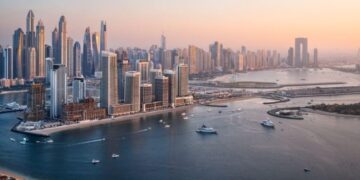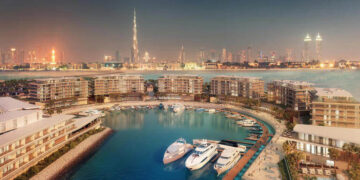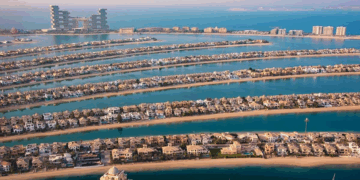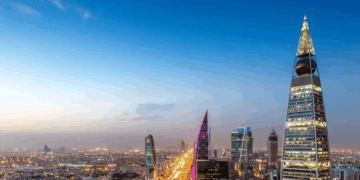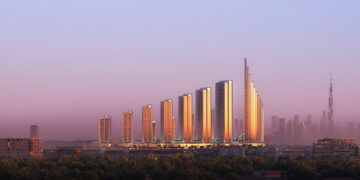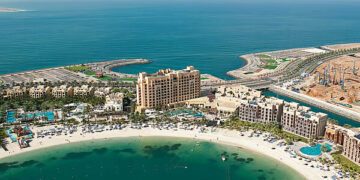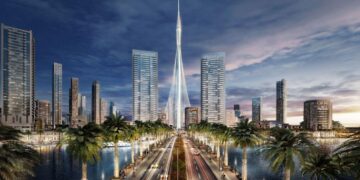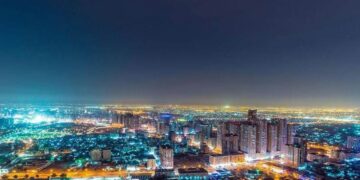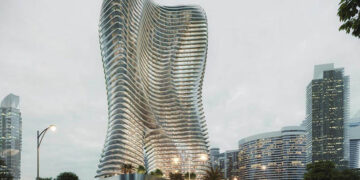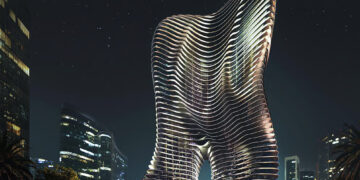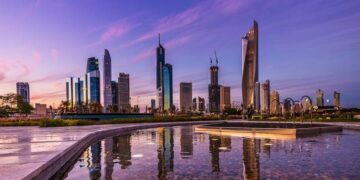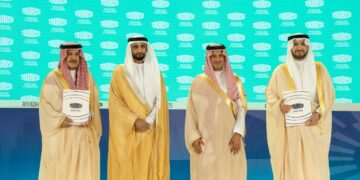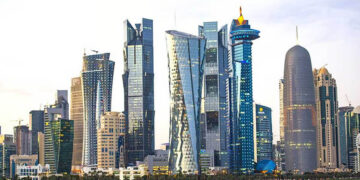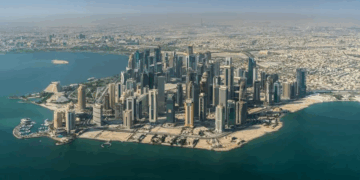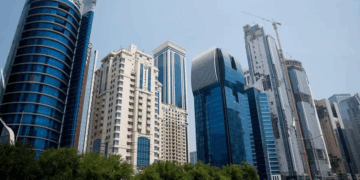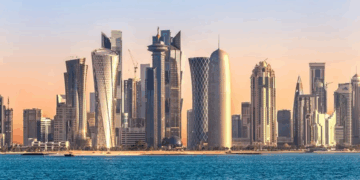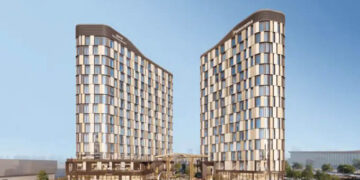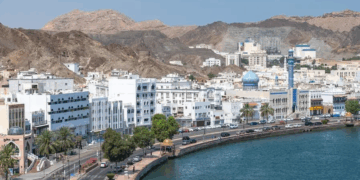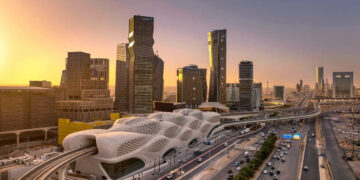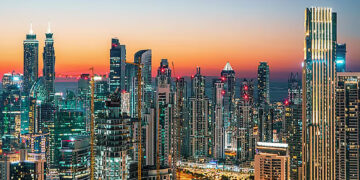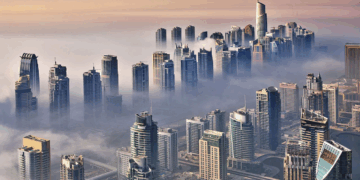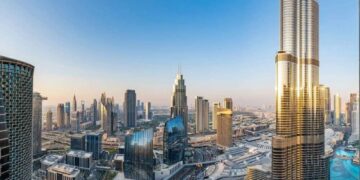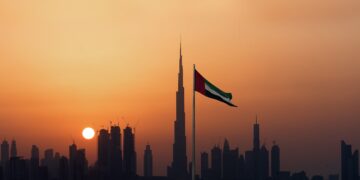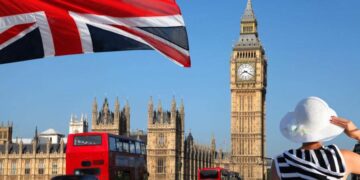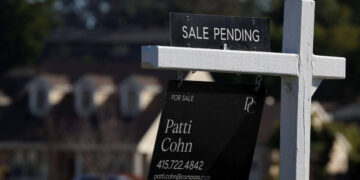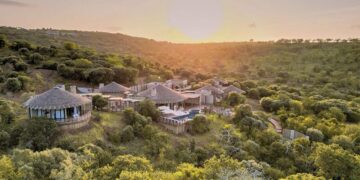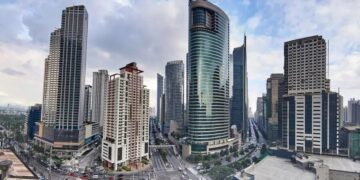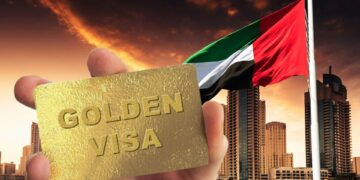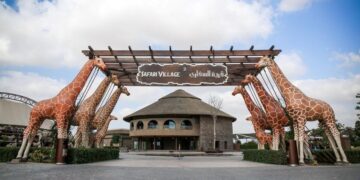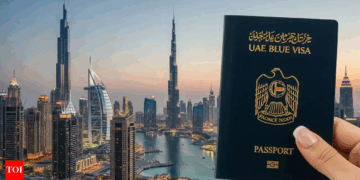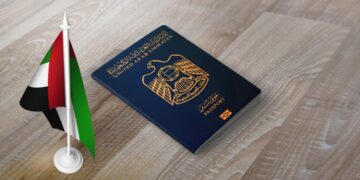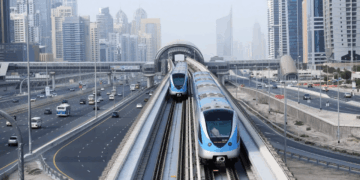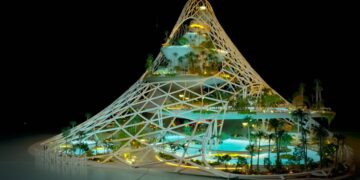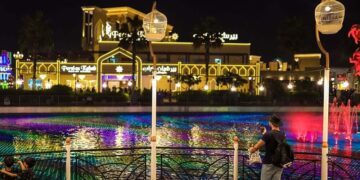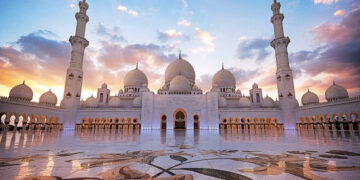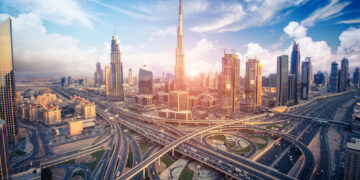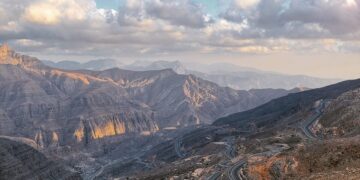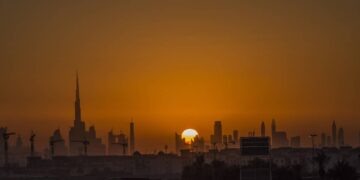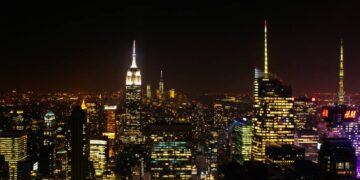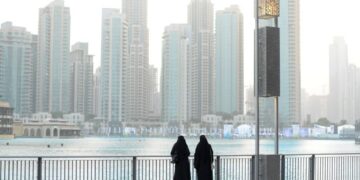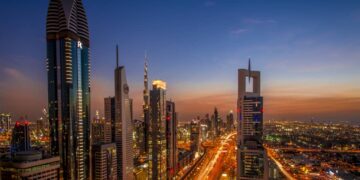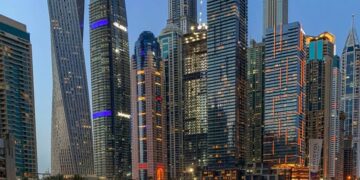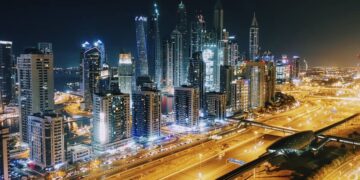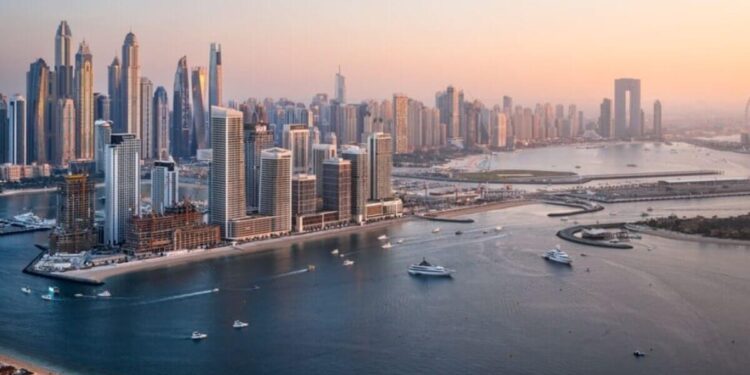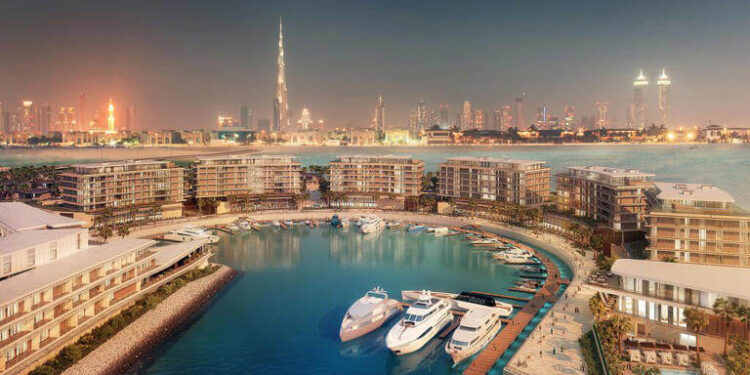With fresh data suggesting a spike in off-plan and secondary sales as locals and foreign investors strengthen their ties to the city, Dubai’s real estate market has continued its incredible run until 2025.
Transactions increased 26% in the four months from May to August compared to the first four months of the year, according to the most recent data by eXp Dubai. This indicates that momentum is still growing even though August saw a seasonal slowdown.
Between May and August, the Dubai Land Department registered 75,519 real estate transactions, a significant increase over the 60,110 recorded during the January–April period. The summer pause caused transactions to decline 4.5% month over month between July and August, although analysts emphasize that the overall trend is still rising, driven by both robust foreign capital inflows and domestic demand. With off-plan activity making up 58% of transactions throughout the four months, compared to 52.7% in the previous months of the year, developers were able to draw in purchasers with flexible payment plans and alluring launch prices.
The impetus is being strengthened by a clear change in consumer behavior. In the first eight months of 2025, Engel & Völkers Middle East recorded a 22% increase in secondary market sales over the same time the previous year. This indicates that more tenants are choosing to buy properties instead of staying in the rental cycle. Many families and professionals are committing to homeownership as a result of rising rents, alluring mortgage offers, and an increasing sense of stability among expats. According to Daniel Hadi, CEO of Engel & Völkers Middle East, “ownership is no longer aspirational for many tenants; it’s becoming the preferred choice for long-term security and value creation.”
In August, 17,879 transactions totaling Dh42.4 billion, a 17% increase in volume and a 12% increase in value year over year, marked another milestone for Dubai’s residential market. Nearly three-quarters of all transactions were off-plan, which is a 25% increase over the previous year. The resale market also saw growth. Sales of four-bedroom and five-bedroom or larger homes increased 70% and 63%, respectively, over the same time period, indicating that larger homes were the most popular.
Both villas and apartments are becoming more and more expensive. Average prices in August were Dh1,664 per square foot, 16.3% more than the previous year, according to Property Monitor. Villas saw notable increases in lifestyle-driven developments, such as Arabian Ranches (23.2%), Dubai Hills Estate (26%), and Victory Heights (37%). Apartments also saw significant increase, with Jumeirah Village Circle (17%) and Jumeirah Village Triangle (22.3%) leading the way. Price resilience is maintained, according to analysts, by a mix of robust population growth, constrained supply in established areas, and Dubai’s status as a worldwide safe-haven city.
Dubai continues to provide some of the highest rental yields in the world to investors. Average gross yields in August were 6.76 percent, 7.12 percent for apartments, and 4.92 percent for villas. Yields continue to easily surpass those of prestigious worldwide cities like London (3–5%), Singapore (3–4%), and New York (5–7%), even in the face of double-digit price growth. More households are locking in ownership as a hedge against rising rents, while lease volumes have decreased by 4% this year and new contracts have decreased by 14%.
Demand is still varied and includes both locals and foreign investors. While domestic purchasers are propelling the resale segment, Indian, British, German, Egyptian, and Chinese buyers continue to be quite active, especially in the off-plan market. With loan-to-value ratios between 70 and 80 percent and rates of about 3.9%, which are among the most competitive in the world, mortgages are becoming more and more significant. In the meanwhile, developer-backed installment plans and cash purchases are maintaining demand in the off-plan market.
Adding further depth to the market is the First-Time Home Buyer Programme, launched in July by the Dubai Land Department and the Department of Economy and Tourism. First-time Emirati and foreign purchasers are given priority access to new launches, special pricing, and customized mortgage packages under the initiative.
Developers ranging from Emaar and Damac to Binghatti and Danube have committed to reserving at least 10% of newly constructed homes priced under Dh5 million for this market. The scheme is being supported by banks that offer quicker approvals and reduced rates, such as Mashreq, Dubai Islamic Bank, and Emirates NBD. According to officials, the plan is in line with the D33 economic goal and Real Estate Strategy 2033, which seek to increase homeownership rates and double GDP.
The dual forces of resident ownership in the resale market and international investment in off-plan projects are predicted by market observers to continue to be significant until the end of the year. Dubai’s real estate market is becoming more widely recognized as a long-term growth story rather than merely a cyclical play due to factors like population expansion, flexible developer options, and government-backed efforts that are lowering entry barriers. As Engel & Völkers’ Hadi noted, “Dubai’s property market is no longer just about short-term investment cycles. It is increasingly about residents choosing to establish roots here — buying homes for security, lifestyle, and long-term value creation. This shift is set to define the next phase of the city’s real estate story.”
